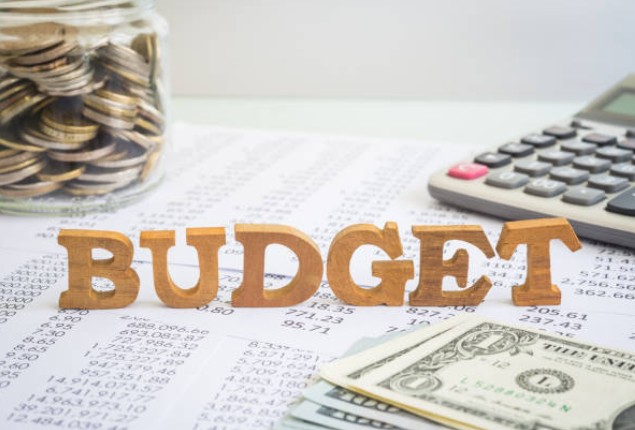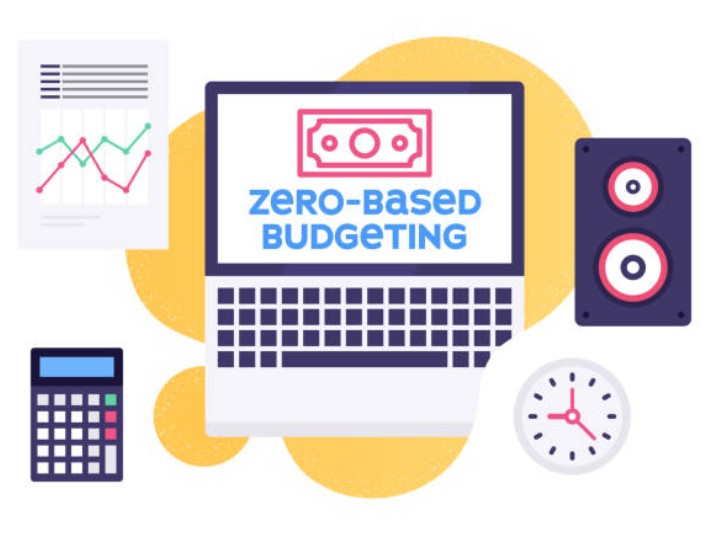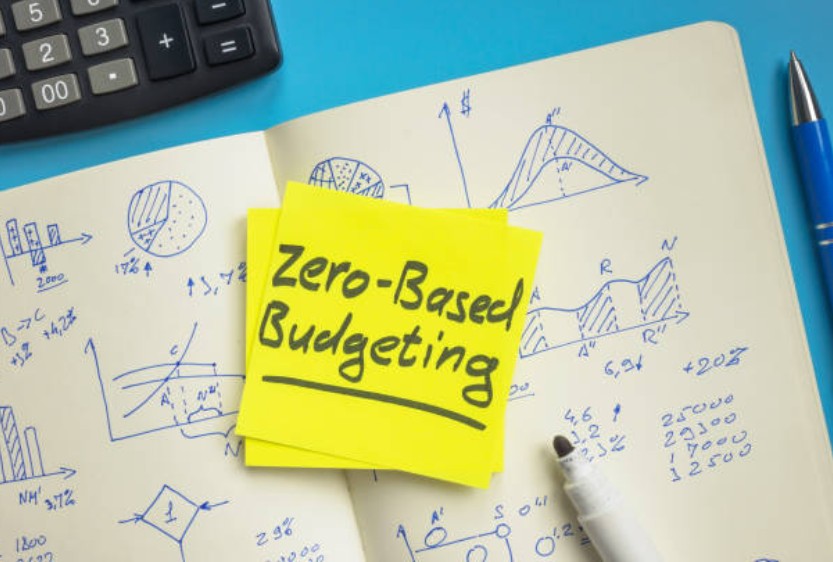Zero-Based Budgeting is a revolutionary approach to personal finance that forces you to assign every single pound earned a purposeful destination. In the uncertain economic climate of today’s UK, this method provides clarity, discipline, and ultimately, financial freedom by ensuring that no money is left unaccounted for. This comprehensive guide will explore every aspect of Zero-Based Budgeting, demonstrating how it can help you budget smarter and maximise your financial potential.
In-Depth Look at Zero-Based Budgeting
Zero Based Budgeting is a planning method where your monthly income is allocated to every expense category, down to the very last pound, beginning each cycle from zero. This process not only encourages detailed financial awareness but also helps eliminate wasteful spending and align your expenditures with your financial priorities.
Core Principles:
- Absolute Accountability: Every pound must have a clear, justified purpose.
- Intentional Spending: Design your budget based on priorities rather than on historical spending habits.
- Flexibility and Adaptability: As your income or priorities change, the budget evolves to reflect those adjustments.
- Focused Savings: By detailing each expense, opportunities arise to reallocate funds toward savings or investments.
Why Choose Zero-Based Budgeting Over Traditional Methods?

Zero Based Budgeting challenges the status quo of traditional budgeting by requiring you to rebuild your financial plan from scratch with every new period. This method dismisses the idea that past spending patterns should dictate future expenditures, allowing you to create a financial plan that is tailored to your current needs and future aspirations.
Distinguishing Features:
- Evaluation Over Inertia: Forget about carrying over past expenses—start fresh to reassess true needs.
- Higher Financial Awareness: Cultivates a deep understanding of cash flow and expenditure needs.
- Empowerment Through Planning: Encourages proactive financial decision-making and risk management.
How Can Zero-Based Budgeting Enhance Your Financial Life?
Zero Based Budgeting is not merely about allocating funds; it’s about reshaping your relationship with money. This dynamic method offers a robust framework for understanding where your money goes and how you can better align it with both short-term necessities and long-term aspirations.
Benefits Explored:
- Financial Clarity: Offers complete transparency regarding income and outflows.
- Intentional Savings: Enables the identification and elimination of non-essential spending, fostering better savings habits.
- Increased Control: Empowers you to be proactive instead of reactive when financial surprises arise.
- Customizability: The method can be fine-tuned to suit various lifestyles, irrespective of whether your income is consistent or variable.
- Enhanced Decision-Making: With every penny assigned a role, you can make informed decisions that directly contribute to your financial goals.
Step-by-Step Guide to Implementing Zero-Based Budgeting

Embarking on Zero Based Budgeting might seem daunting, but breaking it into clear, manageable steps can make the transition straightforward and highly rewarding.
Evaluate Your Total Income:
- Gather all sources of income, whether it comes from salaries, side gigs, or passive revenue.
- Record the net income available for budgeting purposes.
Catalogue Your Expenses:
- List all recurring costs such as rent/mortgage, utilities, groceries, transportation, and subscriptions.
- Include variable and occasional expenses like entertainment, dining out, and unexpected costs.
- Don’t forget to set aside funds for debt repayment and savings.
Assign Every Pound a Role:
- Allocate each pound to a specific category until no funds remain unassigned.
- Revisit and adjust as you factor in discretionary and emergency spending needs.
Implement Tracking and Review Mechanisms:
- Consistently evaluate your actual expenses against your budgeted plan.
- Adjust your allocations for the following month based on this insight.
Refine and Enhance Your Budget:
- Pinpoint the areas in your budget where you can cut costs.
- Reallocate those funds to high-priority areas such as savings, investments, or repaying high-interest debt.
Comparative Analysis: Zero-Based Budgeting vs. Other Methods
To better illustrate the effectiveness of Zero-Based Budgeting, consider the following table that compares it with other popular budgeting techniques used in the UK:
| Budgeting Technique | Advantages | Drawbacks | Ideal For |
| Zero-Based Budgeting | – Complete accountability- Encourages mindful spending- Flexible and dynamic | – Initial setup is time-consuming- Requires regular, detailed tracking | Those seeking total financial control and customised budgets |
| Envelope System | – Simple, physical method- Good for visual spending control | – Limited to cash; challenging for online or digital transactions | Individuals preferring tangible budgeting tools |
| 50/30/20 Rule | – Easy implementation- Quick to set up | – Oversimplifies financial planning- Less effective for detailed control | Budget beginners who need a simple framework |
| Traditional Incremental Budgeting | – Based on historical spending- Minimal adjustments needed | – Can perpetuate inefficient spending- Lacks adaptability | Those comfortable with established spending patterns |
Advanced Zero-Based Budgeting Techniques

For those who have mastered the basics of Zero-Based Budgeting, there are several advanced techniques to further refine your strategy:
Priority-Based Reallocation
- Identify Redundancies: Scrutinise recurring expenses and ask if they are truly essential.
- Emergency Funds: Prioritise setting up a dedicated reserve for unexpected financial shocks.
- Investment Adjustments: Regularly evaluate and adjust your investment contributions based on market conditions.
Progressive Expense Categorisation
- Granular Allocation: Break down larger categories (e.g., “utilities”) into subcategories to pinpoint overspending.
- Visual Budgeting Tools: Leverage modern budgeting software or spreadsheets with embedded charts for visual tracking.
- Periodic Assessment: Conduct quarterly deep dives to refine categories and improve financial forecasting.
Using Technology to Your Advantage
- Budgeting Apps: Applications designed for Zero-Based Budgeting can automate many tasks, including tracking, alerts, and reporting.
- Data Integration: Use tools that sync with your bank accounts for real-time spending updates.
- Custom Dashboards: Create dashboards that map spending trends over time, enabling proactive adjustments.
Case Study: Achieving Success through Zero-Based Budgeting in the UK
Meet Sarah, a London-based professional who turned her financial life around using Zero-Based Budgeting. Initially overwhelmed by the high cost of living, Sarah began tracking every pound, questioning every expense, and reallocating funds from non-essential subscriptions towards a robust emergency fund and debt repayment.
Sarah’s Results:
- Improved Savings Rate: Increased from 5% to 20% of her income within six months.
- Debt Reduction: Significant decrease in credit card debt by reassigning funds to high-interest liabilities.
- Enhanced Financial Confidence: Achieved a better understanding of spending habits, leading to overall reduced financial stress.
This success story underscores the transformative power of Zero-Based Budgeting, proving that with dedication and a structured approach, even those facing financial challenges can regain control and build a secure future.
Final Thoughts: Embrace the Zero-Based Budgeting Revolution
By answering the crucial question, What is Zero-Based Budgeting? and integrating its principles into your financial planning, you can seize full control of your money. This budgeting method not only offers clarity and accountability but also equips you with the tools to adapt to the ever-changing financial landscape of the UK.
Zero-Based Budgeting demands discipline, but its rewards—improved savings, decreased debt, and a more secure financial future—are well worth the effort. Whether you’re an individual or part of a family budgeting for a dynamic economic reality, adopting this method can lead you to smarter financial decisions and a more prosperous life.
Embrace the change, take the challenge head-on, and budget smarter now.
Frequently Asked Questions (FAQs)
How Does Zero-Based Budgeting Differ from Other Budgeting Methods?
Unlike traditional methods that often rely on previous spending patterns, Zero-Based Budgeting starts from scratch. This forces you to justify every expense, ensuring that only necessary items are included and enabling you to adapt quickly to changes in your income or financial goals.
How Can I Adjust Zero-Based Budgeting if I Have an Irregular Income?
Zero Based Budgeting is highly adaptable, even with a variable income. The key is to base your allocations on your current income level each month and always include a buffer for unexpected expenses. Over time, this flexibility can help maintain financial stability.
Is Zero-Based Budgeting Suitable for Both Individuals and Families?
Absolutely. While the principles remain the same, families can benefit from more detailed categorisation to ensure that every household’s need is met. It can also encourage family discussions about financial priorities and joint decision-making.






